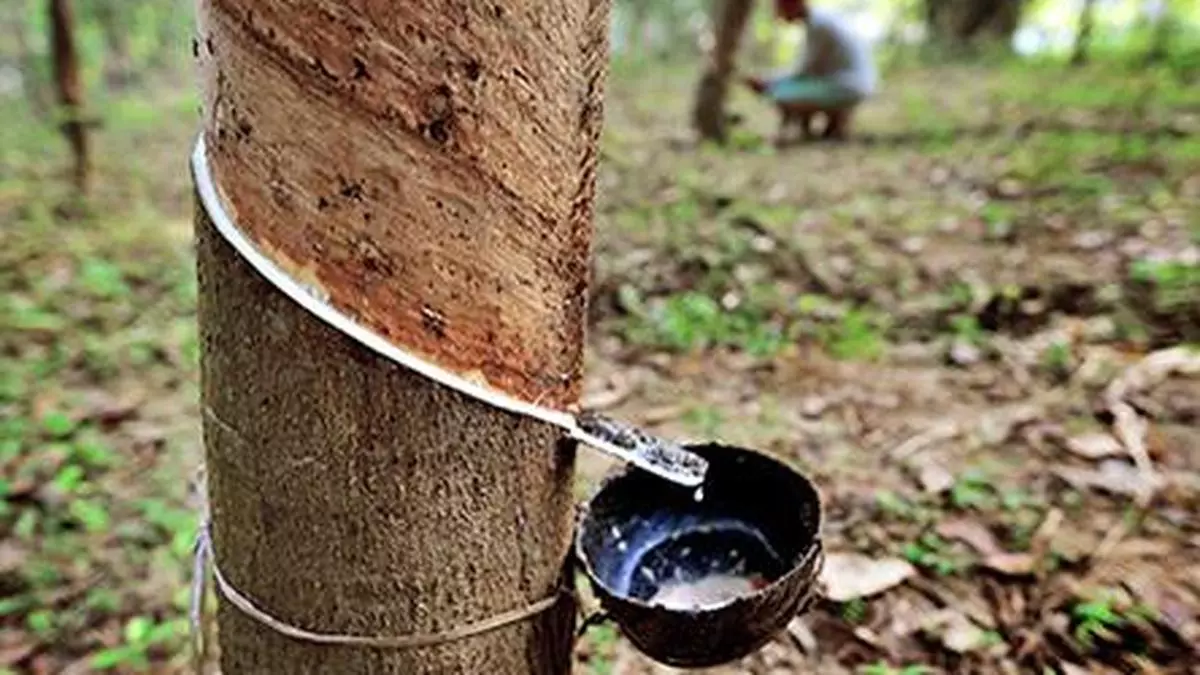Rubber Board urges farmers to optimise tapping to counter drop in global production
Given the declining trend in natural rubber production across producing countries, the Rubber Board has called upon growers to capitalise on the favourable market conditions by engaging in tapping activities to derive maximum yield.
Quoting production data from Association of Natural Rubber Producing Countries (ANRPC), the Board officials said there has been a decreasing trend in the main rubber producing countries. Thailand’s NR production in 2019 to 2024 dropped from 4,849,000 tonnes to 4,686,000 tonnes. Similarly production in Indonesia dropped from 3,301,000 tonnes to 2,516,000 tonnes, and production in Malaysia dropped from 640,000 to 340,000 tonnes during the period.
This decline in production will likely to exacerbate global supply constraints, driving prices up in the years to come. This is the right time to engage in tapping and any shortage of rubber in the domestic market in the coming months, may lead to import of NR, and subsequent fall in price, Rubber Board officials said.
2.1% growth in India
India, according to Board officials, has recorded a 2.1 per cent growth in natural rubber production during the last fiscal at 8,57,000 tonnes up from 8,39,000 tonnes in the previous year. Consumption recorded a significant increase of 4.9 per cent to 14,16, 000 tonnes compared to 13,50,000 tonnes in the previous year.
NR price has been trending upward, and the price of RSS-4 reached ₹192 after touching ₹180 on November 1, 2024. Prices are on the rise in the global scenario as well. The Bangkok market is showing an increase from ₹186 in mid-November 2024 to around ₹200 at present. The surge in price is attributed to China’s stimulus packages, anticipated global monetary easing, and decreased stocks in China, the largest consumer of natural rubber.
Over the years, NR prices are showing an increasing trend. Average prices in the Kottayam market for November 2022-23, 2023-24, and 2024-25 were ₹140.39, ₹153.52, and ₹184.85, respectively. Similarly, Bangkok market prices were ₹127.25, ₹141.93 and ₹196.16, respectively, the officials added.
Stir for high prices
Meanwhile, farmers have launched the second phase of agitation to lift the NR prices above ₹200 per kg level, after finding that the momentum created in the wake of their first phase of agitation has lost steam, leading to a fall in rubber prices.
The National Confederation of Rubber Producers Societies urged farmers on to abandon ‘summer tapping’ as part of the second phase of agitation and not to sell rubber in the market if fair prices are denied.
If the tyre companies are not ready to pay a fair price, at the beginning of the next tapping season, the rubber farmers in Kerala will be forced to withdraw from the rain guarding scheme of the Rubber Board, which will bring down production in the next season, said V V Antony, national president of NCRPS.
